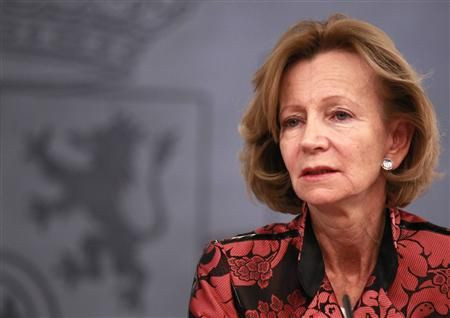Spain Delivers Zero Growth in Q3, Stoking Recession Fears

Spain’s economy failed to grow at all in the third quarter of 2011, just a little over a week ahead of a crucial general election for the debt-ridden country, raising fears of another recession.
The National Statistics Institute said GDP growth was zero over the prior quarter, when the economy eked out a tepid 0.2 percent gain.
On a year-over-year basis, however, the Spanish economy climbed by 0.8 percent in the third quarter.
External demand continues to show an elevated contribution to growth, which is partially offset by the negative contribution of domestic demand, the statistics institute said.
This spells more bad news for the ruling Socialist government which is likely facing a huge defeat at the hands of the opposition conservative Popular Party in the November 20 elections.
Nonetheless, Madrid is still forecasting an overly-optimistic 1.3 percent GDP growth for 2011. In contrast, both the Bank of Spain and credit agency S&P are only targeting 0.8 percent growth.
While the debt crisis and austerity programs in Greece and now Italy have attracted the lion’s share of media coverage in recent months, Spain too is faced with a mounting deficit crisis, weak economic growth and unpopular spending cuts that have outraged much of the populace.
The government of Prime Minister José Luis Rodríguez Zapatero has vowed to cut the annual public deficit from 9.3 percent of GDP in 2010 to 6.0 percent this year; then to 4.4 percent in 2012 and 3.0 percent in 2013.
However, there are doubts such progress is realistic.
The yield on 10-year Spanish sovereign bonds reached 5.9 percent on Thursday – the spread compared to German bonds widened to almost 409 basis points.
Meanwhile, the country’s unemployment rate is also an unsightly 22 percent – which translates into lower income and falling consumer spending.
Spanish bank Banco Bilbao Vizcaya Argentaria, S.A. (BBVA) has warned the country is likely to slip into a recession.
The Spanish economy is stagnating and the probability of it entering into recession is increasing, an analyst at BBVA wrote.
During the last three months, the uncertainty regarding the perspectives for the global economy have increased, which has had a negative effect on the expected recovery of the Spanish economy.
Raj Badiani, an analyst IHS Global Insight, commented: “Spain could be heading for another jolt, with missed fiscal goals for 2011, alongside accelerated falls in employment and house prices condemning the economy to a dire and austerity riddled 2012. With unemployment likely to hover around a confidence-sapping 21 percent for most of 2012, the near-term outlook remains gloomy.”
He added: “The near-term economic outlook has deteriorated, with the latest economic indicators and survey data pointing to a recession spanning the final months of 2011 and the early part of 2012. With Greece still struggling to remain afloat and Italy now in the eye of the Eurozone sovereign debt storm, the Spanish economy will have to endure the fall-out such as a another spike in bond yields, tightening of credit conditions resulting from banking-sector concerns, and persistent financial-market turmoil. This will be a further blow to already dismal levels of consumer and business confidence.”
© Copyright IBTimes 2025. All rights reserved.





















